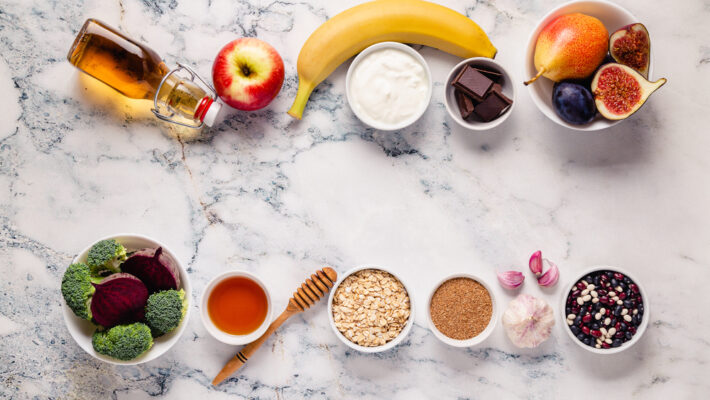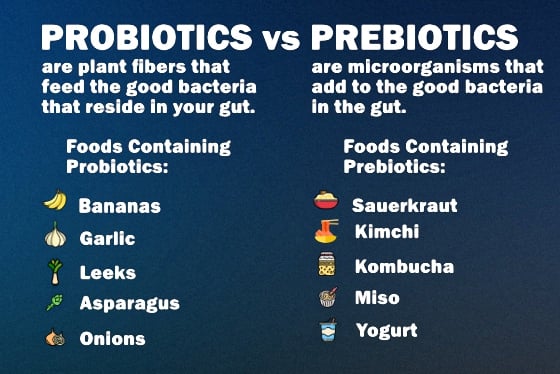Probiotics are naturally occurring bacteria that live on the lining of the intestinal tract. These beneficial bacteria aid in the digestion and absorption of food. People can take probiotics in supplement form and can also be found in a variety of foods. Prebiotics are a good companion to probiotic supplements and help digest and produce…

How Stress Can Impact Your Gut Health and Overall Health
Whether you have extensive family responsibilities, a demanding job, or simply a lot going on in your life, stress is a relatively normal aspect of modern existence. While occasional stress is expected (and in some cases, healthy), constant stress can present some serious effects to nearly all aspects of your health, from your mental health…

The Top 5 Anti-Aging Properties of Colostrum
Bovine colostrum contains many growth and immune factors that have been shown to help delay the effects associated with the aging process. The good news for consumers is that colostrum supplements are natural alternatives to many expensive, time-intensive, and painful anti-aging treatments. The most common signs of aging include loss of muscle mass, bone density, and skin…

Your Gut and Brain Connection May Govern How You Feel
Understanding the Gut-Brain Axis The gut-brain axis refers to a bidirectional connection between the gut and the central and enteric nervous systems. “Bidirectional” means that one can affect the other, and vice versa. It has been long known that mood issues are often associated with gastrointestinal issues, while clinical practice often shows a link between…

Signs Your Gut Bacteria Are Imbalanced
Your gut is home to more than the cheeseburger and cup of coffee you had for lunch. Your gut houses an intricate, complex system of bacteria that many experts consider an organ in itself. This microbiome plays a vital role in your digestion, health, and general wellbeing, but certain everyday factors, particularly in your diet,…

A Healthy Gut Needs a Microbiome-Friendly Diet
Your gut plays host to a complex community of trillions of bacteria known as your gut flora, or gut microbiome. The gut microbiome is comprised of a delicate balance of “good” and “bad” bacteria that play a role in digestion and absorption of nutrients as well as general support for your immune health. However, due…

What to Eat To Improve Your Gut Health
What to Eat To Improve Your Gut Health Home to the densest population of microbes in the human body, the gut plays an important role in immune health, mental health, and overall wellness. Leaky gut and other digestive problems can prevent the gut from functioning as it should. Fortunately, the gut has the ability to…

How Consuming Soft Drinks Can Affect Your Gut Health
Whether you call it soda, pop, or coke, soft drinks have become ubiquitous refreshments, providing consumers with a cool, sweet beverage on the hottest days. Unfortunately, the modern soft drink is packed with sugar or artificial sweeteners while providing very little in terms of actual nutrition. What’s worse, sodas may actually be harming your gut…

7 Signs You Have Leaky Gut
Leaky gut is an increasingly pervasive health disorder in Western societies. It occurs when the lining of the small intestine becomes excessively permeable (develops “holes”), and as such, leads to the crossover of toxins, negative elements, and undigested food particles into the bloodstream. Once these foreign substances crossover, the immune system attacks them. Eventually, the…

Promoting Your Children’s Gut Health
The human microbiome is comprised of the trillions of bacteria populating the human gastrointestinal system. This collective of microorganisms is complex enough that some experts have begun to consider it as its own organ system. It makes sense that the gut microbiome plays a role in digestion and metabolism, but it may also play an…




